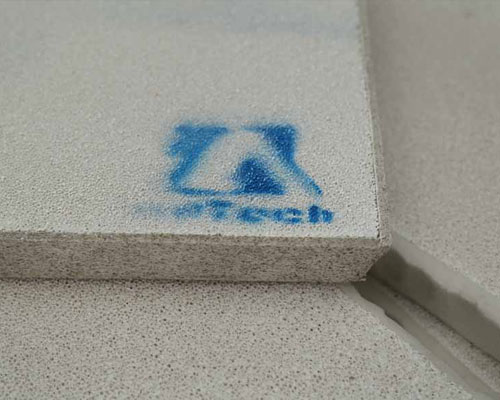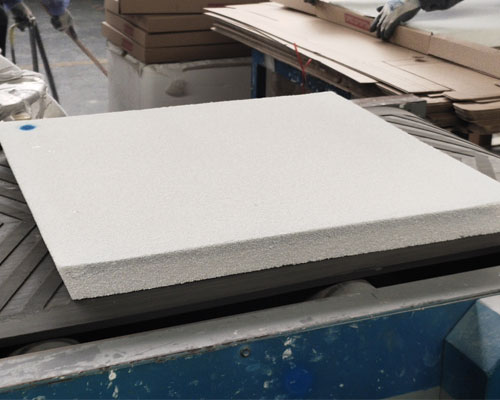Ceramic filters are mainly used for metal filtration in the foundry industry. Suitable for casting steel, cast iron, cast aluminum, alloy, non-ferrous metal castings and large castings. Therefore, the product is widely used in the casting of machinery manufacturing industries such as automobiles, shipbuilding, locomotives, agricultural machinery, engineering machinery, aerospace, machine tools, electrical appliances, engineering pipelines, valves, and pipe fittings.
When the ceramic foam filters are used for metal filtration, the CFF filter can intercept large and small particles as surface deposits are formed. When the adsorbed particles reach saturation, that is, when the number of particles adsorbed from the melt is equal to the number of particles carried away by the flowing melt, the slag removal ability decreases. It needs to be replaced with a new ceramic foam filter.
AdTech alumina ceramic foam filters are used to filter solid slags such as metal oxides contained in molten aluminum during the casting process, thereby improving the quality and yield of castings. Therefore, the use of ceramic foam filters has promoted technological progress in the foundry industry.

The alumina ceramic foam filter has a large metal flow rate and a stable flow rate (unlike the straight hole ceramic filter, the flow rate decreases with the increase of the trapped impurities). It can filter out the inclusions in the casting, reduce the turbulence of the liquid metal flow during the filling process, and significantly reduce the rejection rate of the casting. The fluidity of molten metal is improved, the filling ability and feeding ability of castings are improved, the surface finish, elongation and tensile strength of castings are improved, and the surface quality and mechanical properties of castings are improved.
The alumina ceramic foam filter has high working strength, chemical stability, thermal shock resistance and metal fluid impact resistance. High chemical stability makes it not affected by the acidity and alkalinity of molten metal, and does not change the chemical composition of molten metal. The process has no slag drops or cracks, and ensures the filtering quality and chemical stability of molten metal.

